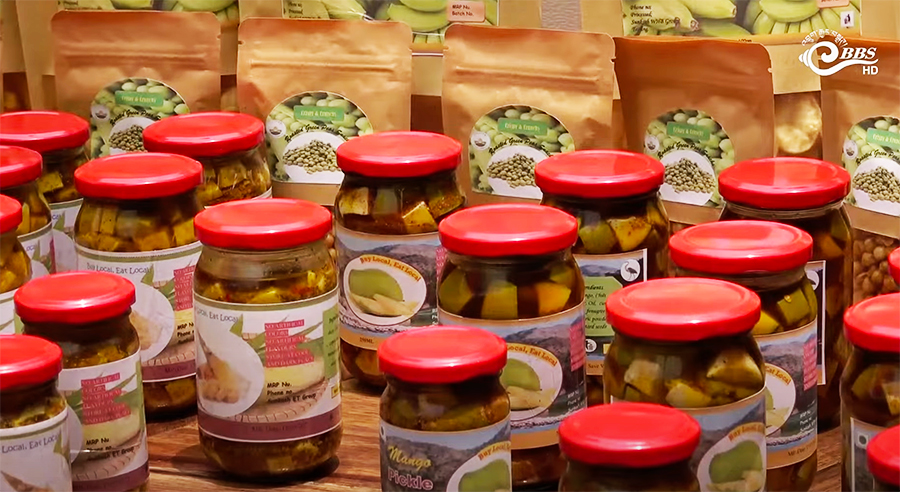 Members of the Devithan Community Forest Management Group in Tsirang will henceforth be able to make the most of the available non-wood forest products. They have been trained in food processing and value addition. The hands-on training is expected to improve their livelihoods.
Members of the Devithan Community Forest Management Group in Tsirang will henceforth be able to make the most of the available non-wood forest products. They have been trained in food processing and value addition. The hands-on training is expected to improve their livelihoods.
More than 40 participants, including the community forest members, nearby residents of Tsirang and Dagana, and roadside vendors, took part in the training.
 They learned to make banana chips, bamboo shoots and mango pickles, and fried pea snacks.
They learned to make banana chips, bamboo shoots and mango pickles, and fried pea snacks.
 The training also focused on packaging, labelling, and improved hygiene and sanitation.
The training also focused on packaging, labelling, and improved hygiene and sanitation.
Tsirang Forest Division, in collaboration with the National Post-Harvest Sub-Centre in Dagapela, organised the training.
“The training that we are conducting today is based on the availability of non-wood forest products within their communities. We are training the community members because of the availability of the non-wood forest products,” said Phuntsho Tobgay, the Chief Forestry Officer of the Tsirang Divisional Forest Office.
“We have an eight-member pickle processing group within the community forest group. The training has enhanced our skills to prepare quality products,” said Kharka Singh Chhetri, the Chairman of Devithan Community Forest Management Group.
Interested farmers from the nearby Tsangkha Gewog in Dagana and Tsirang also attended the training. For the participants, although some of them have been producing and selling pickles on the roadside for a long time, they have not received a comprehensive training like this until today.
“The training would benefit us. We can now produce pickles for our household consumption and even for commercial purposes,” said Jigme Wangmo, a participant from Dagana.
“I have learned about the proper packaging of products. Till now, we have been doing it the other way. I also learned how to make banana chips for the first time,” said Tandin Wangmo, another participant from Dagana.
Nir Kamal Rai, a participant from Tsirang said, “We used to receive complaints from customers due to the poor quality of products and packaging. But now, the training provided us with better insights on how to prepare quality products and to make necessary changes.”
 Two officials from the National Post-Harvest Sub-Centre in Dagapela facilitated the training.
Two officials from the National Post-Harvest Sub-Centre in Dagapela facilitated the training.
The manager of the National Post Harvest Sub-Centre in Dagapela, Jeewan said, “They have received basic training on food processing, but many of the vendors and aggregators, and processors haven’t received advanced training on how to go about it. They have the rough ideas on how to process such products. But in terms of improving quality and standards, I guess advanced training and reskilling programmes are very important.”
The Asian Forest Cooperation Organisation, an intergovernmental organisation in Asia, funded the training.
Pema Tshewang, Tsirang
Edited by Phub Gyem










